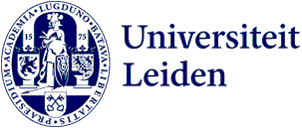In our student days, the way we treat each other can determine our own enjoyment and sense of safety and that of others. It can also have an effect on study results.
During your studies, you will use a variety of online environments such as WhatsApp groups for your study programme or association, Kaltura, Brightspace and MS Teams. These form part of your learning environment. Be aware that your behaviour in these environments can also affect others. Make sure to participate in a manner that is both constructive and appropriate for an academic learning environment. Together we can contribute to a pleasant and safe learning environment for everyone at Leiden University. For this reason, we’d like to share a few tips that you might not have considered as often in your private online environments.
Dos
-
Treat each other with respect. Gossip, bullying, discrimination, offensive language, exclusion and (sexually) inappropriate behaviour are not acceptable, either online or offline. Racism, homophobia, transphobia, ableism and sexism are all forms of transgressive behaviour. Need more information? Consult the toolkit >.
-
Respect the experiences and feelings of others. It is not up to you to decide whether a text, sticker or image is offensive to someone else.
-
Remember: behind every screen and keyboard is a real person.
-
Respect each other’s privacy. Only share other people’s personal information with their express permission.
-
Take responsibility for your own words, also in a larger group. Do not get dragged along by the rest.
-
If emotions are running high, put your phone away for a while. Continue the conversation offline and try to reach a solution together.
-
If necessary, remind each other of this list of Dos.
-
Need support or advice? Get in touch with the administrator of the group, or check who you can turn to on this website.
Academic freedom and freedom of expression
Leiden University attaches great importance to academic freedom. Academic freedom ensures space for conducting research, reporting findings and developing teaching. There are a number of basic principles in place for undertaking research and teaching: honesty, diligence, independence and responsibility. For these, freedom of expression is a prerequisite. In this respect, a founding principle within our university community is that statements and perspectives may not offend, humiliate, exclude or discriminate against others.
What are the limits?
Gossip, bullying, discrimination, offensive language, exclusion and (sexually) inappropriate behaviour are not acceptable, either online or offline. Racism, homophobia, transphobia, ableism and sexism are all forms of transgressive behaviour. Exclusion and discrimination can take the form of intentional unequal treatment but can also be indirect. Prejudices can play out in everyday life, both online and offline. Comments, jokes and statements that reinforce prejudices and assumptions can have consequences for both you and others. Treating each other with respect means treating each other equally. Do not, through your behaviour or remarks, belittle people, treat them unfairly, or make jokes about them.
Support and advice
Have you experienced something unpleasant in one of the online environments? There are a number of people you can turn to for support and advice.
- from a Dutch phone: call 113 (free and anonymous)
- from a non-Dutch phone: call your country's hotline www.suicidestop.com/call_a_hotline.html
- or chat online via 113.nl or your country's online chat service
Header and footer image by Margriet Osinga.

